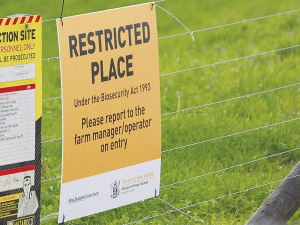OPINION: Kiwi guts and determination have shown the world that the impossible is possible.
Last week the Government announced that New Zealand has no farms infected with the cattle disease Mycoplasma bovis (M.bovis) as the joint government and primary sector eradication effort moves into its next phase.
The milestone means New Zealand moves closer to a world-first eradication of the disease. The last known infected property in Mid-Canterbury has been destocked and declared disease-free, taking New Zealand to zero confirmed infections.
The decision by Agriculture Minister Damien O’Connor to go with the idea to completely eradicate M. bovis has paid off with the news that for the first time in five years there are no cases of bovis in the country and there are no investigations. This outcome clearly vindicates the decision to ignore the advice of people who said such a task was impossible and that no other country in the world could do it.
NZ might be a small nation, but it has a proud history in all aspects of life of punching above its weight and achieving world firsts. This is another one and one that will make NZ famous in the world of agriculture.
O’Connor is rightly cautious in saying that it will take a few more years to be completely certain that this disease is eradicated.
But if there is an outbreak again of M. bovis or, heaven forbid, foot and mouth disease, then NZ has better systems in place to deal with it.
Remember when bovis was first discovered, the NAIT tracing system and in particular its use was far from reliable.
That has improved but there is still room for refinement and if there is one thing that farmers cannot be lax about, it’s biosecurity. Our disease-free status is the single most important pillar of our primary sector.
It was a great team effort and one that will long be remembered.


















